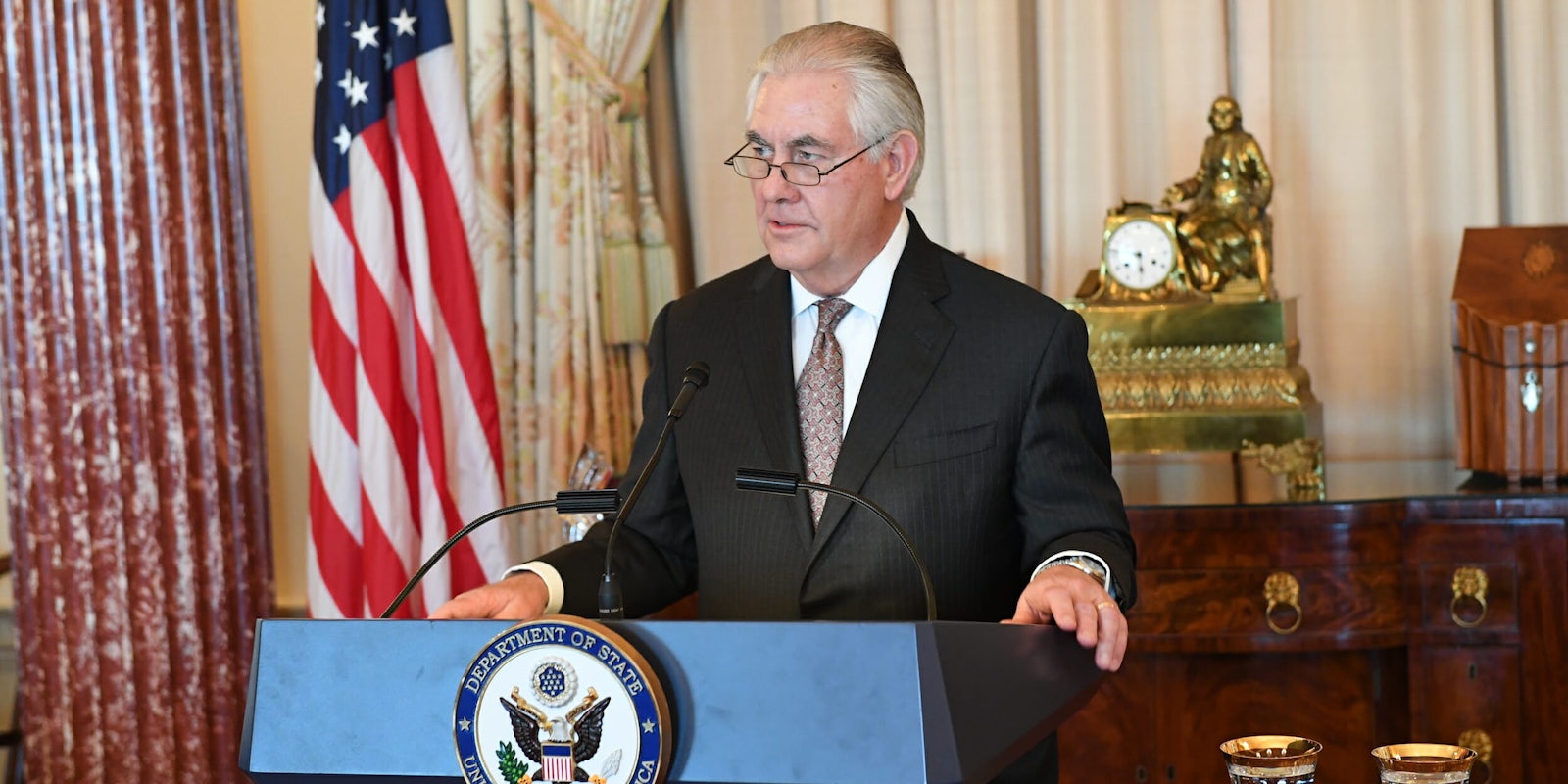This week’s suspected chemical weapons attack in Syria, which killed dozens and left hundreds more sickened, is apparently prompting a dramatic shift in the Trump administration’s outlook toward the regime of Syrian President Bashar al-Assad.
Less than a week ago, senior administration officials told reporters that there were no plans to oust Assad, reversing a position previously held by President Barack Obama. Instead, President Donald Trump’s focus would remain fixed on defeating ISIS, White House press secretary Sean Spicer said last Friday.
But since then, at least 85 Syrians have been killed—including as many as 27 children, according to the United Nations—in what is believe to be an attack involving the banned nerve agent sarin, according to preliminary autopsy results in Turkey. More than 500 others, many of them children, were also injured.
U.S. Secretary of State Rex Tillerson appeared to reverse the White House’s position this week, telling reporters that there is no room for Assad in Syria’s future. At a news conference in Florida, the secretary affirmed the U.S. had “no doubt” that the Syrian regime was responsible for the attack.
“My attitude toward Syria and Assad has changed very much,” Trump had told reporters the day before.
Considered a weapon of mass destruction, sarin is a man-made nerve agent—a classification of highly-toxic chemicals capable of impeding the human nervous system’s ability to work properly. A colorless, tasteless, odorless liquid, sarin is quick to evaporate once deployed, spreading poisonous clouds of gas.
Minimal exposure to sarin can cause a wide range of symptoms, which usually appear within seconds, including blurred vision, rapid breathing, vomiting, and hypotension—whereas a large dose may result in convulsions, paralysis, and respiratory failure, followed by death.
President Obama had previously threatened direct military intervention after the apparent use of sarin weapons in Ghouta, Syria, in 2013. The death tolls varied, but no fewer than 350 people were killed in the attack, according to Doctors Without Borders; other figures from inside Syria registered the dead at over 1,300. U.S. plans to intervene militarily were eventually sidelined, however, after Assad agreed to sign a chemical weapons ban.
Any U.S. military action considered in Syria is immensely complicated by the fact that Russian forces are also deployed in the region. Russia is one of Assad’s most powerful allies, and senior Kremlin officials are adamant that the regime was not involved in this week’s attack. Instead, Moscow has pinned the blame on an explosion at “a chemical weapons storehouse made by Syrian rebels” in Khan Sheikhoun in Syria’s Idlib Province, the Wall Street Journal reports.
Tillerson on Thursday urged the Russian government to reevaluate its role: “It is very important that the Russian government consider carefully their continued support for the Assad regime,” he said.


